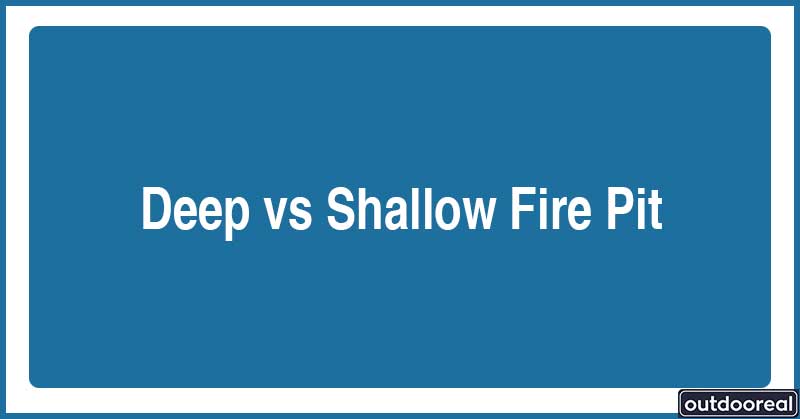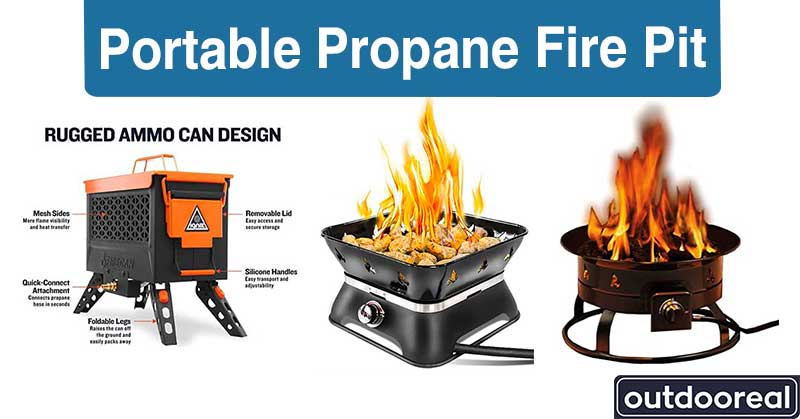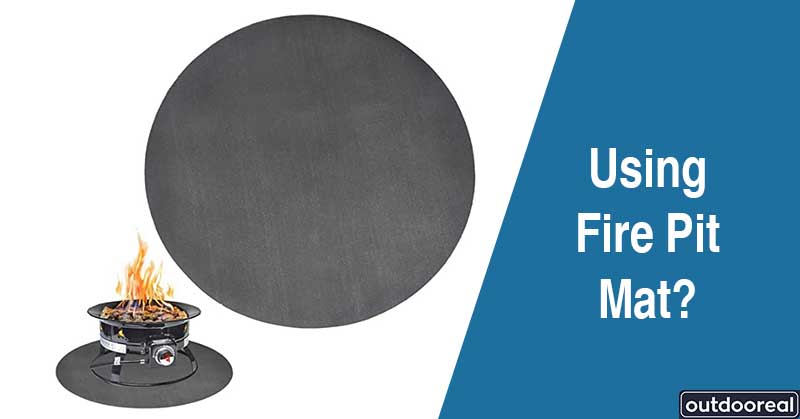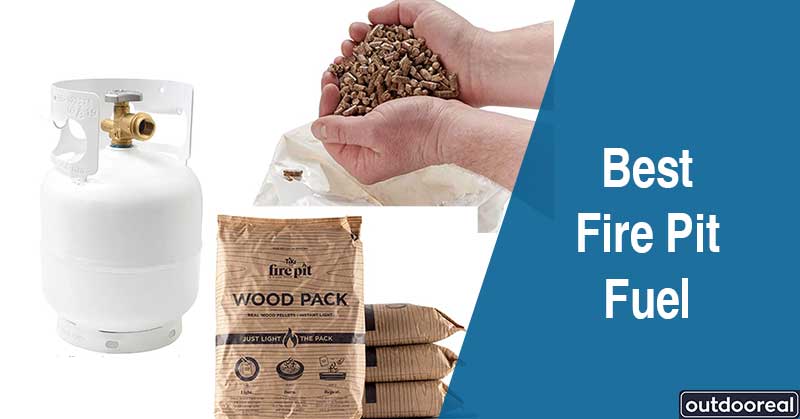Yes, propane or gas fire pits are worth your money and choice. To save the hassle of collecting wood, lighting matches, and cleaning up ashes, propane fire pits are an excellent solution.
Aside from the inconvenience of always needing to refuel propane, their absence of heating is another drawback. It burns cleaner than firewood, using propane or natural gas. And the best thing is that propane or gas fire pits are safer than wood-burning fire pits.
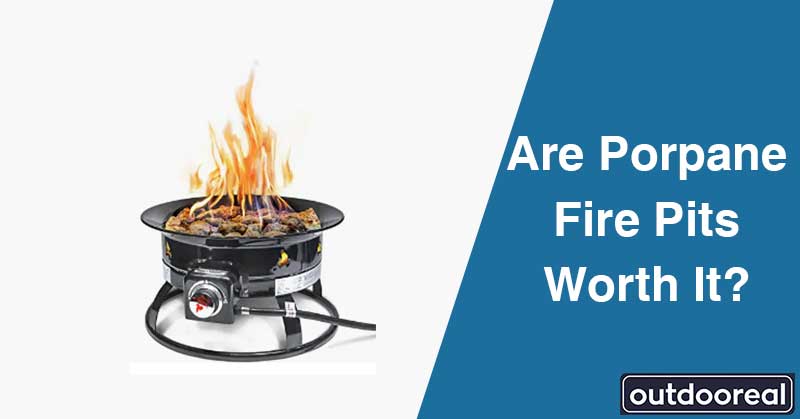
How Popular are Propane Fire Pits?
The popularity of using propane fire pits is increasing day by day. Being clean and portable, many people choose propane fire pits over other fuels. Propane fire pits promise better safety, lesser maintenance and cleaning requirements, durability, portability, and limited cooking services.
You will understand the ratio by looking at the percentage of different fire pit fuel usage of US citizens in 2019.
According to Statista:
Fuel type | Percentage |
Wood | 69% |
Charcoal | 13% |
Propane | 11% |
Natural gas | 4% |
Bioethanol | 2% |
Gel | and 1% |
Pros and Cons of Propane Fire Pit
If you are looking to install a propane fire pit, it is better to look up the advantages and disadvantages you can face while using it. Here in this section, we have tried our best to list the pros and cons from a detailed point of view.
Let’s see the pros and cons of a propane fire pit at a glance:
Pros of propane fire pit
- Easy to maintain
- No ashes or burnt leftover
- Burns efficiently, and they are environment-friendly
- Affordable
- Safer
- Hassle-free fuel
- It can be used under a gazebo or pergola
- Portable
Cons of a propane fire pit
- Not for cooking
- Less heat
- Frequent refilling of propane tank
Pros of a Propane Fire Pits (in Detail)
Easy to maintain:
Propane fire pits are easy to maintain than wood-burning fire pits, and the cleansing and maintenance are surprisingly easy. Establishing the fuel is also simple, attach the propane tank and ignite the pilot. After filling the system with propane, you will have a fire within minutes. Often, dials are straightforward to operate and enable fire control.
No ashes or burn leftover:
When using gas for a campfire, everything burns up, and there are no ashes to clean up. Therefore, it is convenient because there’s nothing to clean after usage. Moreover, you do not have to worry if the firepit catches a sudden shower, for the debris to get wet and swamp.
Burns efficiently, and they are environment-friendly:
Propane fire pits burn clean and produce little smoke, which is good for the environment and health. However, according to the US environment protection department, the carbon produced by fire pits will harm the lungs and respiratory system. Also, the smoke contributes to environmental pollution. So, if you are conscious and severe about environmental protection and health propane fire pit is a good choice.
Affordable:
You may wonder about the price ranges of the propane fire pits, but to our surprise, these fire pits come at a very reasonable price. Of course, the cost is more than that of a wood fire pit, yet it is still manageable for most budgets. Depending on the features and dimensions, a portable gas fire pit can cost anywhere from $80 to $700.
Safer:
There won’t be sparks or smoke from your propane gas fire pit like there would be with a wood fire. These factors pose less of a threat to fire and people’s health because of these factors. The possibility of gas pooling has been mentioned, although it need not be a problem if the system is installed and maintained correctly.
Hassle-free fuel:
The best thing about gas fire pits is that o do not have to collect firewood or logs. Also, you do not have to store them.
Using propane as fuel will save space and the hassle of finding perfect firewood.
It can be used under a gazebo or pergola:
You can have a fire pit fueled by natural gas or propane beneath a covered patio, but only if the ceiling is higher enough to satisfy the CSA’s guidelines for clearance. And a propane fire pit is safe to use under a pergola or gazebo.
Portable:
The most easily transportable fire pits run on propane. Turn it off, and then you may quickly relocate it. The fun thing is that you can control the fuel at your own will. Some are available in compact sizes for easy transport.
Cons of a Propane Fire Pit (in Detail)
Not for cooking:
While marshmallows and hot dogs may be cooked over a propane fire pit, serious cooking requires a grill or a wood fire pit. For starters, the meat is cooked more thoroughly and safely because of the greater temperature. Grease and drippings from cooking can clog the burners in gas fire pits and render them ineffective.
Less heat:
Heat production is one of the significant factors where propane fire pit losses to wood-burning fire pits. A propane or gas fire pit produces less heat. The typical gas fire pit produces around 40,000 BTU. During moderate weather, this can keep a small gathering of people toasty. However, a wood-burning fire pit produces more than 100,000 BTU.
Frequent refilling of a propane tank:
If you use your propane fire pit frequently, you will have to replace it often.
We have written a detailed difference between propane and wood-burning fire pit here.
Are Propane Fire Pits Cheaper than Wood-Burning Fire Pits?
No. Propane fire pits are not cheaper than wood-burning fire pits. However, they are affordable. If you have access to a woodlot, wood might be a more cost-effective fuel source than propane.
Wood-burning fire pits are also easier to construct, costing 50-75% less than their gas counterparts. Propane fire pits start with a minimum range of 80$, while a wood-burning fire pit is available for 30$.
How Much Gas Does Propane Fire Pit Use?
A 20-pound propane tank is used for various propane-powered fire pits. A standard 20-pound gas tank will power a fire pit for three to six hours. Gas fire pits, patio heaters, generators, propane grills, and other similar items use propane tanks; a propane heater, for example, has a heating output of 50,000 BTU. If you have a 40,000 BTU heater, it will take 0.437 gallons per hour.
Final Verdict
A propane fire pit is the best among all the types of a fire pit, considering safety and maintenance. Compared to wood fire pits, propane fire pits have several clear benefits. Propane burns more efficiently than wood and does not emit as much smoke. Gas fire pits with automated igniting systems are also simpler to start. Before buying a propane fire pit, consider all the advantages and disadvantages.


